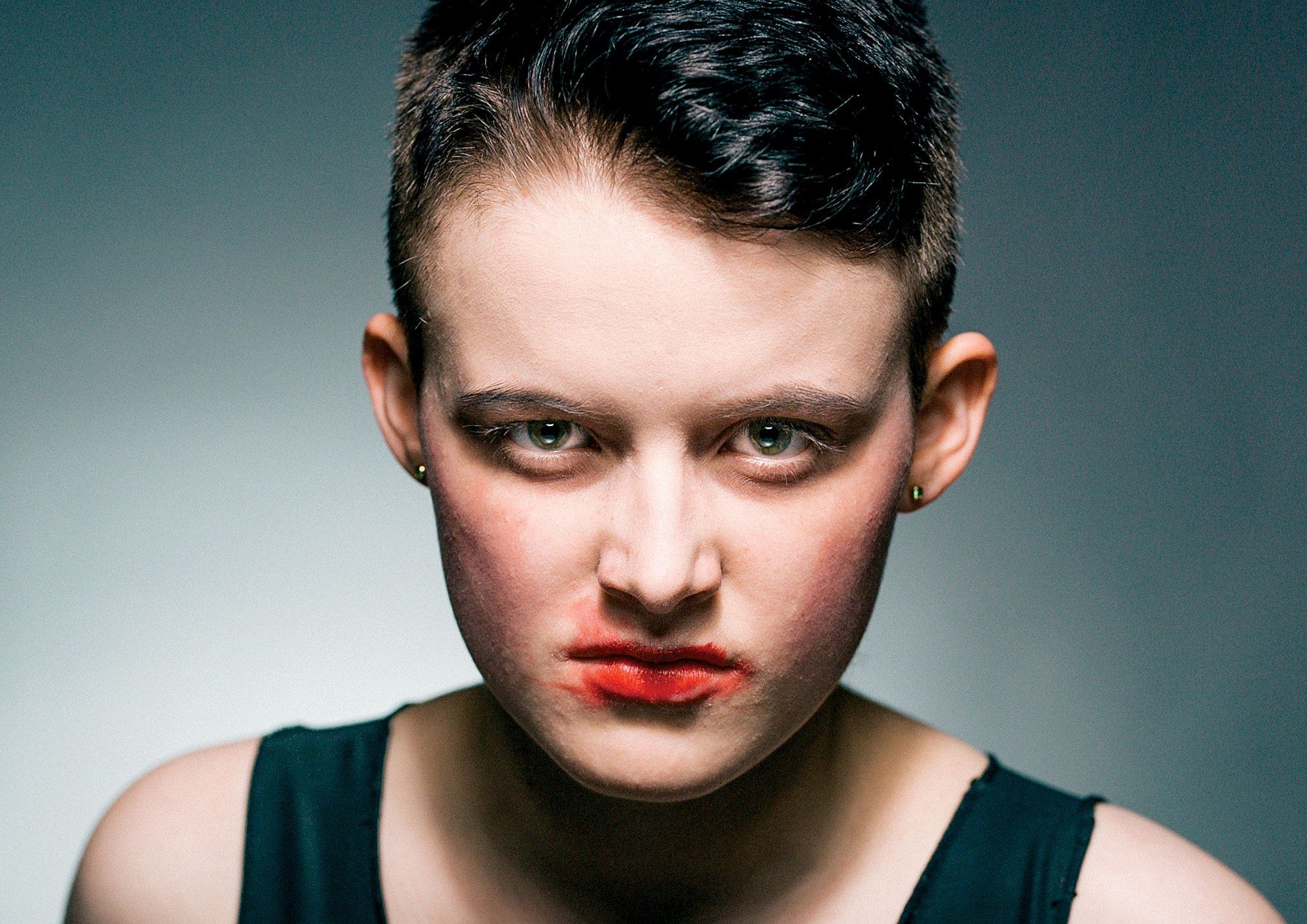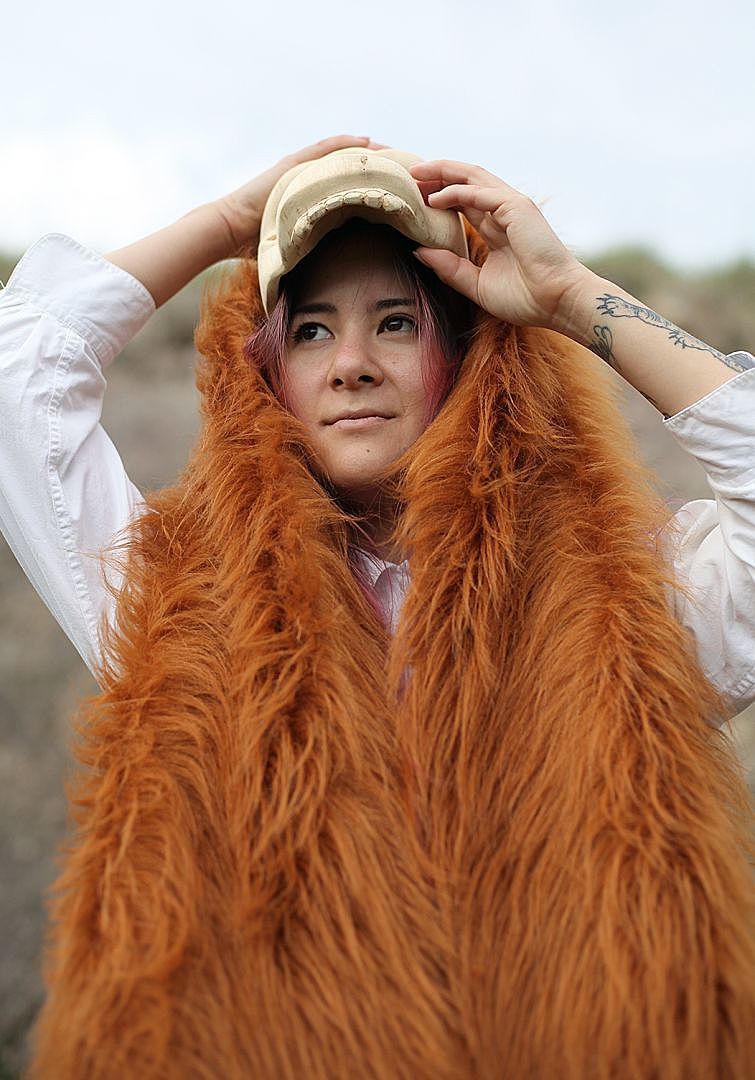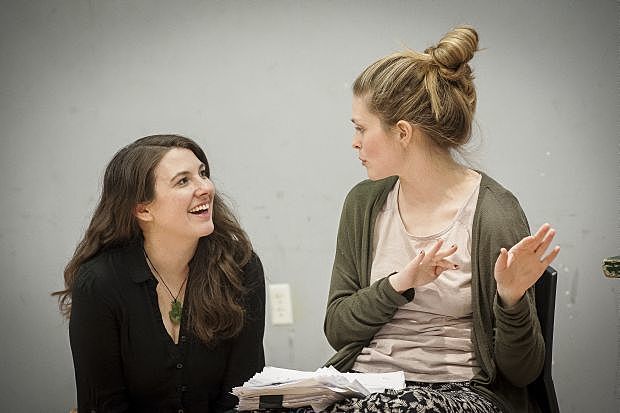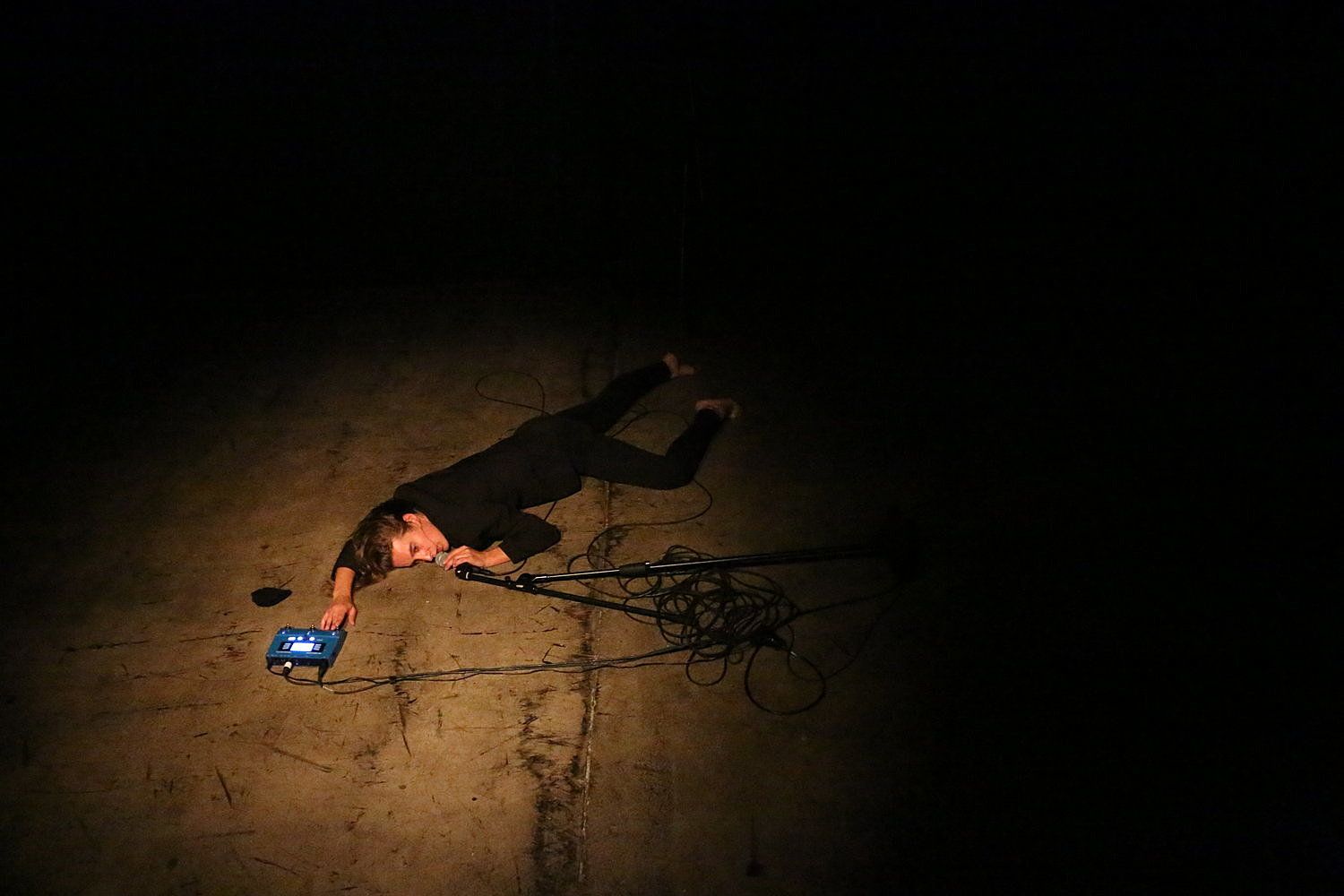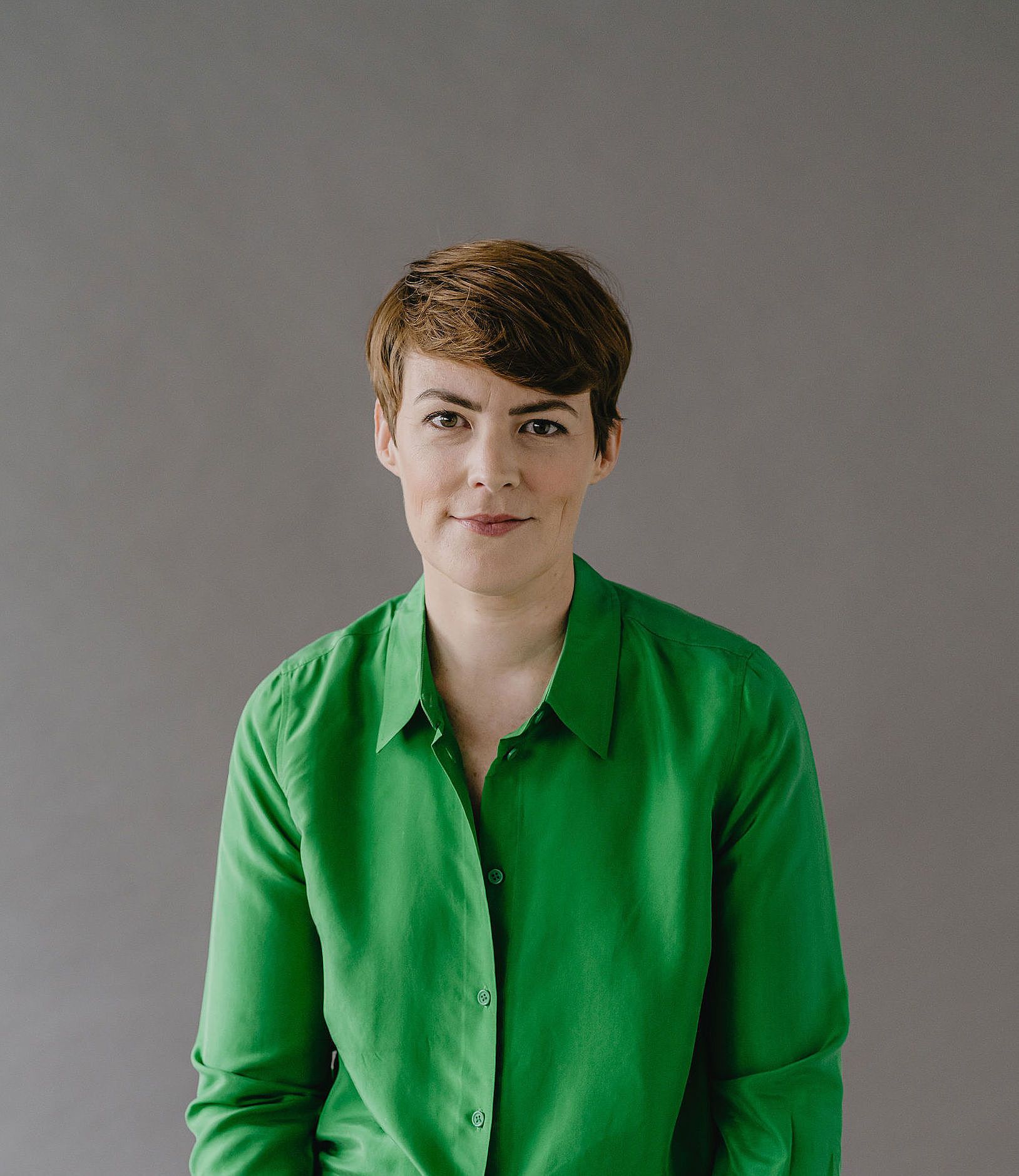They Have Some Shit To Say: Creating Work with Young People
This weekend ATC's Here and Now Festival opens at ASB Waterfront Theatre and runs until April 24th.
This weekend Auckland Theatre Company's Here and Now Festival opens at ASB Waterfront Theatre and runs until April 24th. The festival includes talks, workshops, and The Big Schmooze – a chance for young people to connect with educational arts institutions and venues.
But the centrepieces of the festival are three performances made with and for young people: Boys (a reframing of Greg Mcgee's 1981 landmark play Foreskin's Lament) directed by Eleanor Bishop and Julia Croft, Dance Like Everybody's Watching (a devised promenade performance) directed by Alice Canton, and spoken word performance Mouth: Tongue: Teeth directed by Grace Taylor.
Work made with and for young people is often perceived as a box-ticking exercise or comfortably shunted under all the tropes we associate with 'Youth Theatre'. Yet it can be so much more. In theatre cultures in Australia and Europe there is a growing movement to free theatre made with young people from only targeting youth audiences, and to make work of high production value fuelled by the concerns of young people purposely for adults, using the theatre to bridge generational divides. While ATC's season is primarily geared towards younger audiences, Eleanor Bishop and Julia Croft's Boys is shrewdly wide in audience scope. By interrogating a classic New Zealand source text it plays with intergenerational – and very New Zealand – reference points.
It's a really exciting group, this collection of directors, all of whom have worked in community and youth contexts as well as exploring their own directing or performance practices. With that in mind, Theatre Editor Kate Prior asked Alice, Eleanor and Julia (unfortunately Grace was deep in rehearsals) about their experience making work with The Youth of Today.
During rehearsals, what has surprised you?
Alice Canton: How much ground we've covered in such a short space of time (two months), with less contact time and resources than a full-time production. We've been developing fundamental skills in performance (voice, movement, text and stagecraft), devising (making original content), company cohesion, professional practice, and creative collaboration. It's like training for a triathlon.
Julia Croft: The cast. They are a constant source of surprise, in the best way. Their intellect, passion, commitment and humour has been the most fulfilling part of working on this project.
What fuels you about the way young people engage with artistic practice compared with adults or professionals?
Eleanor Bishop: Young people are the best because they're so hungry and brave and willing to give of themselves. They’re not settled in their ideas of who they are or their politics. They’re constantly questioning. This is the perfect mindset to be making political work.
JC: It’s my own fault, but I think it’s easy to come into a process with young people with preconcieved ideas, making assumptions about how much leading, talking, making you will have to do. It's so great to have that challenged constantly. The cast come up with sophisticated and rich ideas that I never would have come up with. It’s also wonderful watching some of them discover themselves as artists for the first time – learning to trust their instincts and ideas more and more. My hope for all of them it that they'll go on to make their own work, inspired in part by this process.
Working with young people also requires a space devoid of cynicism. That's not always the case with adults. It's important to be reminded of that. They make me a better artist.
AC: I love how intensely earnest young people are with the performance process and yet how unashamedly casual they can be to the point of seeming so disinterested that you wonder why you even bother. That kind of pendulum swing is both infuriating and endearing.
Working with young people requires a space devoid of cynicism.
Are there differences in the way you work with young people and the way you work with adults?
AC: With adults, you have to deal with ego and bow to some kind of invisible social hierarchy. I'm a small, young, analytical, high-energy woman. That literally puts me at the bottom of the directing heap in this country. No one trusts or gives merit to your ideas, experience, or perspective on the world when you look and perform the way I do. So I feel less self-conscious when I work with young people, because they don't really give a shit about that. Perhaps that's why I've always worked with them.
Young people are quick to give things a go, but slow to grasp concepts. But I'd rather that than adults who tend to understand intellectually what you want, but are sticks-in-the-mud for actually trying it out.
EB: We give them longer breaks so they can enjoy being with each other, and maybe work towards a pash at the cast party... But joking aside, I think the biggest difference comes from not necessarily working with people I know well, who are already awake to feminist politics. When it's just the two of us working together on our own work, Julia and I work incredibly differently to when I’m working with a group of young people who haven’t chosen to be there because of feminism. We go slow and have lots of time for questions and hugs and self care.
JC: I think it's important for them to discover each other as a company, as friends. There are times when I feel it’s important for me and Eleanor to get out of the way and let them talk with each other, joke with each other. When I think back to theatre I did when I was young, it really was the other people in the cast who made it something for me. As directors we don’t have to be present all the time – it’s sometimes about allowing them space.
What are the challenges of working with young people?
AC: They’re saturated with opportunities (and obligations) and you are often fighting to be a priority. Hormones. School. Uni. Family. First times (getting a flat/car/job/boyfriend/girlfriend/drunk/laid etc).
EB: The challenges are practical – differences in skill level, lack of training, you have to rehearse at night because everyone has jobs and uni, for example.
AC: But aside from the obvious, the hardest one is shifting their ideas on authority and What Is Theatre (both of which young people inherit from school). If I hear one more person say that something is "Brechtian" or a "drama convention"...
Do you think audiences engage differently with work by young people?
AC: Yeah I'd say youth theatre company culture has only really developed in New Zealand in the last 10 years (thanks to the work of practitioners like Willem Waasenaar, Leo Gene Peters, Holly Chappell, Aaron Cortesi and Laurel Devenie), but on the whole there isn't a great understanding or value for what young people can do in the live theatre space. We've inherited this bizarre 'Speech and Drama' thing from Mother England, so I think most audiences think it's about being able to say a poem really well and a dumb monologue with actions. But maybe that's just indicative of what people think theatre is in this country, period?
It's in a similar way to the perception of children's theatre: it's seen as lesser-than. And then the work suffers. Because at a systemic level, organisations put less money into developing that work, give it to less-experienced directors, and pay actors peanuts (so inevitably it goes to eager drama school grads). Crippling when you think of this work being the formative experiences of live performance for young, supple minds.
I think work by young people is perceived to be for young people. It isn't (not always, at least). It can speak profoundly to intergenerational understanding.
I think work by young people is perceived to be for young people. It isn't (not always, at least). It can speak profoundly to intergenerational understanding, and provide a thrilling and unique way of looking at things. The world that young people face now is not the same we faced. Sometimes hearing and seeing that can really open up your understanding of how complex the world is becoming.
EB: I think audiences maybe don’t treat it as seriously. They think it’s perhaps trivial, or light. I think that’s partly behind my impulse with Boys to go very big, use Foreskin’s Lament, and be on this big stage. Because the things young people deal with are epic in scale.
JC: I would love to see work by and for young people approached with more seriousness. I think it's also indictive of how we culturally and socially treat the voices of young people. I listen to Radio New Zealand a lot and I am struck more and more by the fact that all the voices are people over 40. I think we would do well to give more space to the views of younger people in this country. They have some shit to say.
How much has the work been informed by the company? In what way?
EB: The work has been hugely informed by the company. We interviewed all the cast and some of their personal testimony is in the text. The struggle of young women to be heard and the struggle of young men to fight misogyny in their peer groups are the struggles the cast are living with. This is the central conflict of the piece.
JC: We went into this process with an idea of the structure of the piece but a lot of the content has come directly from their words. The play would not exist in its current form without them or with any other group of people, and I think you can feel that when you watch them perform the work. They are so in it and it's so in them. I'm proud of this. I can't wait to sit in the theatre and watch them take this work and find it all over again in front of an audience.
The struggle of young women to be heard and the struggle of young men to fight misogyny in their peer groups are the struggles the cast are living with. This is the central conflict of the piece.
AC: I came to my company with an idea. They generated most of the content, based on the provocations I wrote (informed by the conversations and observations of the cast), and artists and companies I've suggested they watch. I've tried to be as transparent about my decision-making, so they get why we say 'yes' to some offers (and a resounding 'no' to others). It's their show, their purpose, their values. I've guided and shaped the ideas, and enhanced their vision. In this way, I'm more of a curator than a director.
Alice, as a practitioner you use the body a lot in your work – how does this translate when you’re directing a project such as this?
AC: I find bodies so much more interesting and expressive then mouth holes. I've always danced and have a deep appreciation for movement practice, so it just comes with me into most of my projects.
I really like using Anne Bogart's Viewpoints [a compositional technique for movement] as a starting point for a process that works with generating new material with ensemble and site. It's a system that gives enough limitations whilst also opening up new possibilities for the way the body operates in space. And teenage bodies can be wonderfully awkward so it creates some nice codes for how to build offers in a safe and supportive environment. It creates a great collective understanding and language base which really helps carry the process into performance, but also for feedback and critical conversations.
Julia and Eleanor, how did the cast respond to the original text you're utilising – Greg Mcgee's Foreskin's Lament?
EB: Some of them had studied it at school before so were familiar with it. The first time we read it through as a company, I think everyone was baffled by it. There were viseral responses to some of the misogyny showcased in the original play. As we worked with it, and particularly as we found ways to use the original lines but in different contexts, or to make some of it strange (like having everyone perform one person's speech) everyone really fell in love how dense and rich and relevant the original text is.
JC: The boys who had experience in the world of rugby seemed to engage with it. For the rest of the cast I think it's a difficult text to find an entry point into. Both in terms of the language, which is very dense and in some points quite dated, and the content, which is representing a world that at first glance is quite far removed from most of their experience. I feel like they didn’t really get excited about the text unitl we started talking about it in some very long discussions where we unpacked it together. The more we talked, the more I saw their connection with the text grow.
Would you have participated in this kind of work when you were younger?
EB: OMG yes. But I wasn’t a very good actor, so maybe I wouldn’t have been able to get in, but I would’ve loved to be part of something like this.
AC: Absolutely! I didn't have anything like this around when I was a teenager (although I will note the Christchurch Drama Centre, headed by Rosie Belton, which was an after-school comfort for an entire generation of theatre nerds, including myself, Hamish Parkinson, Daniel Pengelly, Julia Croft, Brooke Williams, to name a few).
JC: Absolutely. I would have loved the chance to make political theatre as a young person. I don’t ever recall politics being part of the youth theatre that was on offer when I was young. In many ways my teenage years were the peak of my life for passionate political engagemnt. I feel like my whole 20s were a journey back to the feisty young woman I was at 17.
I want to get them into that swanky new theatre, and for them to know that it's our theatre too. They have a place in that space too.
You each have your own practice but this is a specific setting of an Auckland Theatre Company environment. What audience have you had in mind when making?
EB: Young people. We wanted to make a space where young women and men could stand together in front of other young people and reckon with difficult questions of toxic masculinity.
JC: Yeah, we wanted to make the work primarly for young people. This is work by young people for young people. But having said that I don’t define myself as a young person and I think I would love this show if I came as an audience member.
AC: ATC has a loyal and supportive audience, amazing resources, and this incredible new venue. They are hyper visible, not just in our community, but to the general public. It's a great opportunity for the audience to encounter a work like Dance Like Everybody's Watching (site-specific, devised, promenade, immersive, youth company) and stimulate their theatre-palettes with something that's a little different to a traditional fourth-wall realism play. It's also great exposure for our cast. But more importantly, it's making the work of ATC accessible to younger, more diverse audiences. I want to get them into that swanky new theatre, and for them to know that it's our theatre too. They have a place in that space too.
Boys runs from April 21 – 24 at ASB Waterfront Theatre. Tickets available here.
Dance Like Everybody’s Watching runs from April 22 – 24 at ASB Waterfront Theatre. Tickets available here.
Mouth: Tongue: Teeth runs from April 22 – 23 at ASB Waterfront Theatre. Tickets available here.
